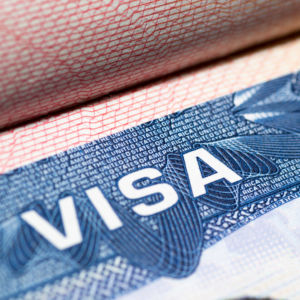Federal immigration services announced a new initiative Monday aimed at preventing employers from using high-skilled visas for cheap foreign labor, a move that should allay some concerns expressed by critics.
President Donald Trump has expressed concern employers are undercutting domestic workers with cheap foreign labor. The H-1B visa program is supposed to prioritize domestic workers, but some are concerned the system is being misused. The U.S. Citizenship and Immigration Services (USCIS) announced they will be taking steps to prevent abuse.
“The H-1B visa program should help U.S. companies recruit highly skilled foreign nationals when there is a shortage of qualified workers in the country,” the USCIS said in a statement. “Yet, too many American workers who are as qualified, willing, and deserving to work in these fields have been ignored or unfairly disadvantaged.”
The USCIS is primarily changing how they approach random site visits. The agency visits employers who participate in the program to ensure nothing is amiss. They will begin specifically targeting employers with business information that’s difficult to validate, visa dependent employers, and employers who operate at another organization’s location.
“Targeted site visits will allow USCIS to focus resources where fraud and abuse of the H-1B program may be more likely to occur, and determine whether H-1B dependent employers are evading their obligation to make a good faith effort to recruit U.S. workers,” USCIS said. “USCIS will continue random and unannounced visits nationwide.”
The USCIS adds the site visits are not meant to target foreign-born workers. The visits are instead aimed at identifying employers who are abusing the system. Trump has previously expressed his intention to overhaul the visa program out of concern it is being abused.
“The H-1B program is neither high-skilled nor immigration,” Trump said in a statement last year. “These are temporary foreign workers, imported from abroad, for the explicit purpose of substituting for American workers at lower pay. I remain totally committed to eliminating rampant, widespread H-1B abuse.”
The H-1B visa program also has supporters who believe restrictions are already too tight. They contest the bigger issue is a lack of qualified domestic workers to meet demands. The computer and technology sector has become increasingly in need of skills that are in short supply domestically.
Some supporters agree abuse needs to be addressed, but warn most companies legitimately need those foreign workers. Restrictions could hurt industries that depend on foreign workers to provide needed skills. Industries like tech have helped drive innovation and domestic employment.
Foreign-born workers and their children play a significant role when it comes to the economy and innovation. The Global Entrepreneurship Monitor found in a 2012 report that immigrants start businesses at 12.7 percent. Their children start businesses at 16.4 percent. Non-immigrants only start businesses at 12.9 percent.
The Information Technology and Innovation Foundation (ITIF) conducted a survey to determine which demographics are most innovative. It found that 35 percent of the innovators that were sampled were born outside the country. Another 10 percent were the children of immigrants.
The USCIS announced the changes on the day H-1B visa applications opened for next year. The H-1B program has a congressionally-mandated cap of 65,000 visas. The program is allowed to grant an additional 20,000 for foreigners with advanced degrees.
Visa programs cover a range of labor market needs from agricultural workers to high-skilled employment. The H-1B visa program is specifically designed to fill positions in specialty occupations. It covers skilled sectors like biotechnology, engineering, healthcare, and law.
An inspector general report to lawmakers in November warned that the program is prone to fraud and abuse, and has been a point of concern since the 1990s. The Government Accountability Office published a report in 2011 citing similar concerns.
The USCIS has conducted random administrative site visits since 2009. The agency typically refers cases of suspected abuse to Immigration and Customs Enforcement for further investigation. Employers are only supposed to use the H-1B visas when they cannot find a qualified domestic worker do hire.
The H-1B program and some other visas were implemented under the Immigration and Nationality Act of 1965. CNN reported earlier this month the government suspended expedited processing for H-1B visas. The president has argued companies should instead provide jobs to domestic workers.
Trump does face legal limits when it comes to changing the visa program, and can’t overhaul it unilaterally. The H-1B program was included in legislative reforms to U.S. immigration law in the ’60s, meaning it will take an act of Congress to fundamentally change the program.

